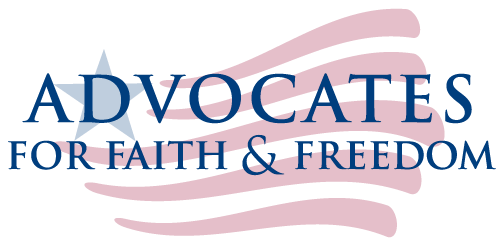CHURCH AND STATE
The original intent of the First Amendment
Our Founding Fathers, in their wise foresight and past experience with the Church of England, included the enormously important First Amendment in our Constitution, which states:
“Congress shall make no law respecting an establishment of religion, or prohibiting the free exercise thereof…”
Nowhere in this Amendment do the framers of our Constitution state that the government should restrict the rights of religious institutions or of individuals to practice religion. The intent of this founding principle was to prevent the government from creating a standardized religious denomination and forcing the people of America to follow only one religion.
So…how did “separation of church and state” enter our vernacular?
In 1802, Thomas Jefferson wrote a letter to the Danbury Baptist association, in which Jefferson stated:
“…I contemplate with sovereign reverence that act of the whole American people which declared that their legislature should ‘make no law respecting an establishment of religion, or prohibiting the free exercise thereof,’ thus building a wall of separation between Church & State.”
The “wall of separation” that Jefferson wrote about was meant to keep government out of the decisions and beliefs of individual Americans. We see this from the text that just precedes the above quote, when Jefferson indicated:
“Believing with you that religion is a matter which lies solely between Man & his God, that he owes account to none other for his faith or his worship, that the legitimate powers of government reach actions only, & not opinions…”
And so the phrase “separation of church and state” came into being and was soon utilized by the courts to rule on First Amendment issues.
The result of misconception
So we have seen that the phrase “separation of church and state” was not found in any of our founding documents, but was meant to actually limit the invasion of government in religious and personal, spiritual matters. We are supposed to be celebrating freedom of religion, not freedom from religion.
We believe firmly in the First Amendment of the Constitution, and we also believe that many people – and even some courts – have misconstrued its meaning to take away personal religious freedoms that were granted to us by our forefathers. That is why our law firm exists – to defend religious liberty, one case at a time.
